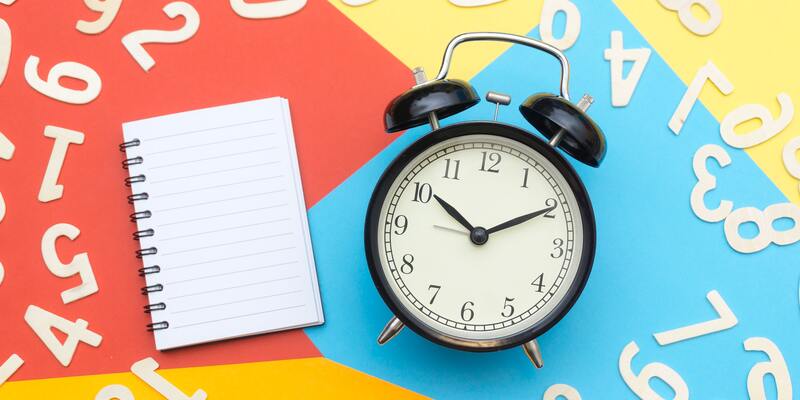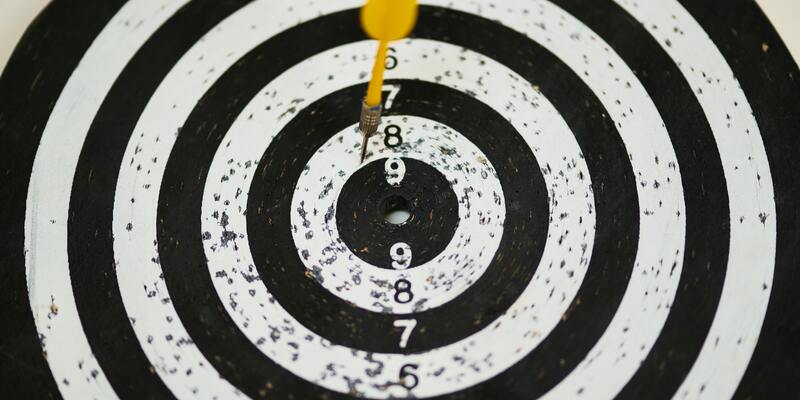4 ways to improve your willpower, break bad habits and stop procrastinating


By Eleanor Hope-Jones
•
Jan 13, 2023
Willpower is a fickle thing. Technically willpower is defined as:
The ability to control your thoughts and behaviour, especially in difficult situations.
We often use our willpower to resist short-term temptations, like that second chocolate bar, driving somewhere nearby instead of walking, or scrolling on our phones instead of studying.
But why do some people (cough Tom Cruise cough) seem to have superhuman self-control?
Let’s take a closer look at why you might lack willpower and struggle with self-control, and 4 ways you can improve this form of self-discipline.
Why do I lack willpower?
There are different schools of thought on how willpower works. Let’s take a look at a few of the most well-known studies.
The marshmallow test
Walter Mischel PhD created the marshmallow test to examine self-control in children. Simply put, he told children they could have one marshmallow now, or two marshmallows if they waited.
From this experiment, Dr Mischel developed the “hot-and-cool” framework.
The “cool system” is shorthand for your cognitive brain. It’s the smart, adult part of your brain that reflects on the overall best course of action and uses self-discipline to achieve its goals.
Meanwhile the “hot system” is calling all the emotional impulsive shots. Mischel theorises that any kind of “hot” stimulus, like a delicious sweet marshmallow, overpowers the cool system and your struggling willpower.
What constitutes a “hot stimulus” we hear you ask? Well, that’s the juicy part.
Mischel believed some people are more sensitive to “hot stimulus” and some people more resistant.
Some of that was based on revisiting the original children from the marshmallow experiment and discovering the ones who could resist the marshmallow also had higher scores on their SATs.
Four decades later, scientists tracked down these same people and found that those who’d exhibited self-control as children also demonstrated self-control as adults.
When they examined their brains using an MRI, scientists found the adults with the greatest amount of willpower had more activity in the prefrontal cortex, the front part of your brain responsible for decision-making.
“Willpower isn’t something that gets handed out to some and not to others. It is a skill you can develop through understanding and practice.”
The cookie experiment
The cookie experiment takes a different approach to examining willpower and self-control.
Experts who follow this school of thought liken willpower to a muscle that can get fatigued with overuse, or strengthened through consistent practice.
But where do cookies come into this?
Dr Roy Baumeister experimented on people by bringing a tray of freshly baked cookies and a bowl of radishes into a room. Some people were asked to resist the cookies and only eat radishes, whilst others were allowed to eat whatever they wanted.
Afterwards, both groups were asked to complete a tricky puzzle. Baumeister discovered that people who resisted the cookie gave up on the puzzle after an average of eight minutes.
Meanwhile, those who ate a cookie persevered for 19 minutes.
Lots of studies have since highlighted this phenomenon of willpower depletion, and the idea that we only have a certain amount of willpower each day to resist temptation, and that we must choose how we’re going to spend it.
Leading questions
Our personal beliefs on willpower may also shape how much impulse control we have.
Veronika Jo, PhD led a 2010 study that found people who believed their willpower to be a finite resource ran out after exerting self-control, whilst those who believed the opposite did not experience any willpower depletion.
Dr Carol S Dweck's work on growth mindsets also supports this view, implying that if an individual believes their willpower, and ability to improve it, is limited then it will be (also known as someone with a fixed mindset). Whereas someone with a growth mindset will view willpower as a skill to be developed.
All of which means it’s worth engaging your self-awareness and questioning what your mindset around willpower is.
🗨️ Need a nudge of inspiration for your next deadline?
60 Quotes on procrastination to inspire, embolden and motivate you

How to improve willpower
Here at FLOWN, we do believe you can develop and train your willpower like a muscle.
Whether that’s increasing your capacity for deep work or finding the morning routine that works for you.
If you’re trying to improve your willpower specifically, here are our four top tips:
Exercise to release ‘focus’ endorphins
We’re sorry it’s not more interesting, but study after study shows the benefit of exercise to increasing willpower.
A 2006 study showed that after just 2 months of exercise every single participant increased their ability to self-control and self-regulate.
Not to mention improvements in perceived stress, emotional distress, eating unhealthy food, drinking and smoking.
Speakng of stress and unhealthy habits…
Lower your stress and increase your heart rate variability
The problem with stress is as soon as your fight-or-flight response is turned on, your prefrontal cortex, the responsible, cognitive thinking part of your brain, goes offline.
As soon as your prefrontal cortex is offline, your willpower will disappear with a puff of smoke.
A good measure of your stress level is your heart rate variability. Simply put it's the amount of time between each heartbeat.
Your heart relies on the parasympathetic system and sympathetic nervous system to tell it how quickly to beat. If you have high heart rate variability it means your heart is listening to both systems and constantly adjusting itself.
Thi is a good thing!
It means you’re relaxed, balanced and your prefrontal cortex is online. But as soon as you’re stressed your heart rate variability will go down.
Heart rate variability is the single most accurate biological indicator of willpower. If you have higher heart rate variability you are statistically far more likely to be better at delaying gratification, dealing with stress, ignoring distractions and self-control.
Sound pretty good?
Some of the things that can lower our heart rate variability include poor habits like:
High-stress levels
Sleep deprivation
An unhealthy diet
A lack of exercise
So healthy habits like getting enough sleep, learning to manage stress levels, breathwork, and healthy eating all improve our willpower! Don’t try and break bad habits all at once
If you’re trying to eat healthier food, stop smoking, read more often, drink less, start a new hobby and learn a new language all at the same time…
You’re probably exhausting that willpower muscle.
Research suggests being depleted in one area will reduce willpower in other areas as well. Habits expert James Clear suggests taking on one new habit at a time until that new habit becomes part of your normal routine to create lasting positive change.
Researchers call this “automaticity”. It only happens as a result of repetition and practice.
It can be helpful to think of willpower like weight training. You’re steadily adding more weights and reps to help grow your muscles, but if you try and add too much at once your willpower fails just like your muscles do.
So try and set realistic goals of adding one new habit every couple of months to grow a stronger willpower muscle.
“Most of life’s actions are within our reach, but decisions take willpower.”
To resist temptation, remove the temptation
Think back to the marshmallow test and cookie experiment.
What would have happened if the children had never been exposed to the gooey marshmallow or delicious cookie?
They’d never have had to use up some of their precious willpower to resist it. Rather than depleting your willpower, consider how you can remove the temptation altogether.
Can you take a different route home to avoid your favourite takeout place? Can you lock your phone away whilst you’re working? Can you use anti-procrastination apps to stop you from accessing certain websites?
Think about how you can preserve your precious willpower for the truly unavoidable moments of temptation.
Practice self-control, self-awareness and watch your willpower improve
When you have no willpower left in your cup that's when procrastination can become a huge problem.
Remember to think of your willpower as a muscle that needs to be pushed, stretched and tested, as well as rested, fed and given a good night's sleep.
Good luck in all your willpower-driven endeavours!
Use flocks to improve your willpower
Try a Flock for free to lessen the willpower burden
FLOWN runs online virtual co-working sessions called 'Flocks', designed to free you from distraction and take the willpower out of productivity.
Try a Flock for free today, and see how much you can tick off your to-do list!














